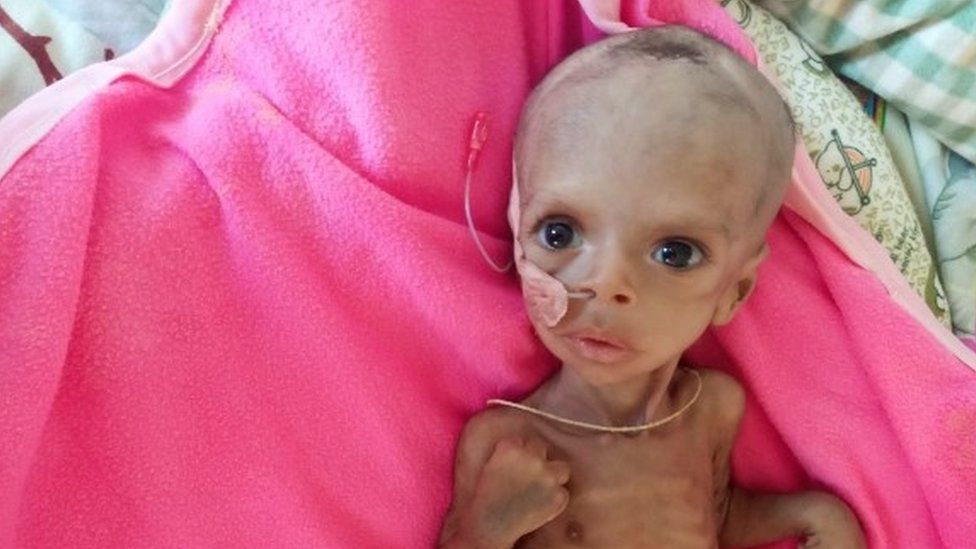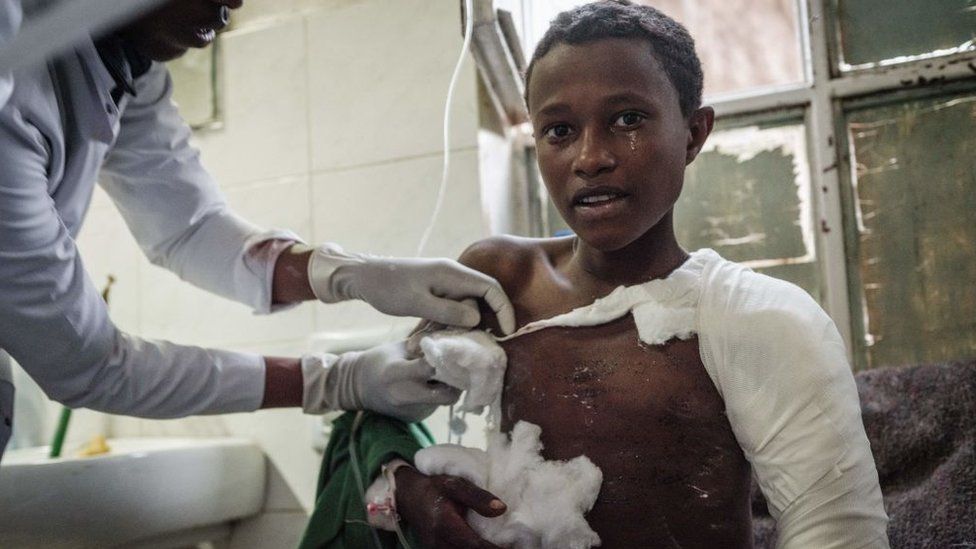While marking the 1st anniversary of alleged Trump-incited mob attack on U.S. Capitol building on January 6,2021, United States Vice President Kamala Harris observed that the January 6th incident reflects the dual nature of democracy; its fragility and its strength.

She further explain in her televised address observed by DNT News that, What the attackers who breached the gates of the Capitol targeted was not only the lives of the elected leaders, stressing that “What they sought to degrade and destroy was not only a building, hallowed as it is. What they were assaulting were the institutions, the values, the ideals that generations of Americans have marched, picketed, and shed blood to establish and defend”.

The U.S Vice President said January 6, 2021 was the day Americans observed what the country would become if the extremists who sort to destroy the American democracy succeed. The lawlessness, the violence, the chaos. What was at stake then, and now, is the right to have our future decided the way the Constitution prescribes it: by we, the people — all the people, Kamala said.
Kamala Harris echoed that the strength of democracy is the rule of law. The strength of democracy is the principle that everyone should be treated equally, that elections should be free and fair, that corruption should be given no quarter. The strength of democracy is that it empowers the people. And the fragility of democracy is this: that if we are not vigilant, if we do not defend it, democracy simply will not stand; it will falter and fail.
Before bringing her anniversary speech to a conclusion, the American Veep made a strong declaration by saying “Let’s be clear: We must pass the voting rights bills that are now before the Senate, and the American people must also do something more. We cannot sit on the sidelines. We must unite in defense of our democracy in order to form a more perfect union, establish justice, ensure domestic tranquility, provide for the common defense, promote the general welfare, and secure the blessings of liberty to ourselves and to our prosperity and posterity.

See full Speech Below
Fellow Americans, good morning.
Certain dates echo throughout history, including dates that instantly remind all who have lived through them — where they were and what they were doing when our democracy came under assault. Dates that occupy not only a place on our calendars, but a place in our collective memory. December 7th, 1941. September 11th, 2001. And January 6th, 2021.
On that day, I was not only Vice President-elect, I was also a United States senator. And I was here at the Capitol that morning, at a classified hearing with fellow members of the Senate Intelligence Committee. Hours later, the gates of the Capitol were breached.
I had left. But my thoughts immediately turned not only to my colleagues, but to my staff, who had been forced to seek refuge in our office, converting filing cabinets into barricades.
What the extremists who roamed these halls targeted was not only the lives of elected leaders. What they sought to degrade and destroy was not only a building, hallowed as it is. What they were assaulting were the institutions, the values, the ideals that generations of Americans have marched, picketed, and shed blood to establish and defend.
On January 6th, we all saw what our nation would look like if the forces who seek to dismantle our democracy are successful. The lawlessness, the violence, the chaos.
What was at stake then, and now, is the right to have our future decided the way the Constitution prescribes it: by we, the people — all the people.
We cannot let our future be decided by those bent on silencing our voices, overturning our votes, and peddling lies and misinformation; by some radical faction that may be newly resurgent but whose roots run old and deep.
When I meet with young people, they often ask about the state of our democracy, about January 6th. And what I tell them is: January 6th reflects the dual nature of democracy — its fragility and its strength.
You see, the strength of democracy is the rule of law. The strength of democracy is the principle that everyone should be treated equally, that elections should be free and fair, that corruption should be given no quarter. The strength of democracy is that it empowers the people.
And the fragility of democracy is this: that if we are not vigilant, if we do not defend it, democracy simply will not stand; it will falter and fail.
The violent assault that took place here, the very fact of how close we came to an election overturned — that reflects the fragility of democracy.
Yet, the resolve I saw in our elected leaders when I returned to the Senate chamber that night — their resolve not to yield but to certify the election; their loyalty not to party or person but to the Constitution of the United States — that reflects its strength.
And so, of course, does the heroism of the Capitol Police, the D.C. Metropolitan Police Department, the National Guard, and other law enforcement officers who answered the call that day, including those who later succumbed to wounds, both visible and invisible.
Our thoughts are with all of the families who have lost a loved one.
You know, I wonder, how will January 6th come to be remembered in the years ahead?
Will it be remembered as a moment that accelerated the unraveling of the oldest, greatest democracy in the world or a moment when we decided to secure and strengthen our democracy for generations to come?
The American spirit is being tested.
The answer to whether we will meet that test resides where it always has resided in our country — with you, the people.
And the work ahead will not be easy. Here, in this very building, a decision will be made about whether we uphold the right to vote and ensure free and fair election.
Let’s be clear: We must pass the voting rights bills that are now before the Senate, and the American people must also do something more.
We cannot sit on the sidelines. We must unite in defense of our democracy in order to form a more perfect union, establish justice, ensure domestic tranquility, provide for the common defense, promote the general welfare, and secure the blessings of liberty to ourselves and to our prosperity and posterity.
That is the preamble of the Constitution that President Biden and I swore an oath to uphold and defend. And that is the enduring promise of the United States of America.
My fellow Americans, it is my honor to introduce a public servant with the character and fortitude to meet this moment, a leader whose life’s work has been moving our nation toward that more perfect union: President Joe Biden.











